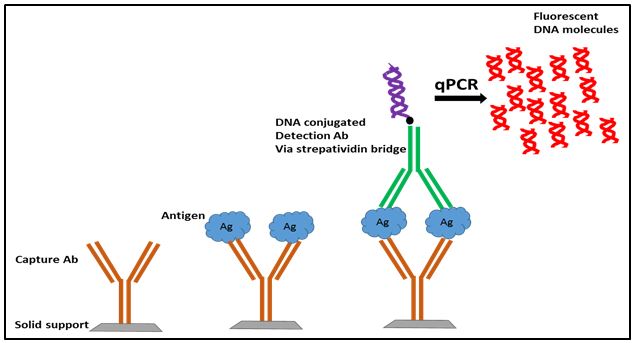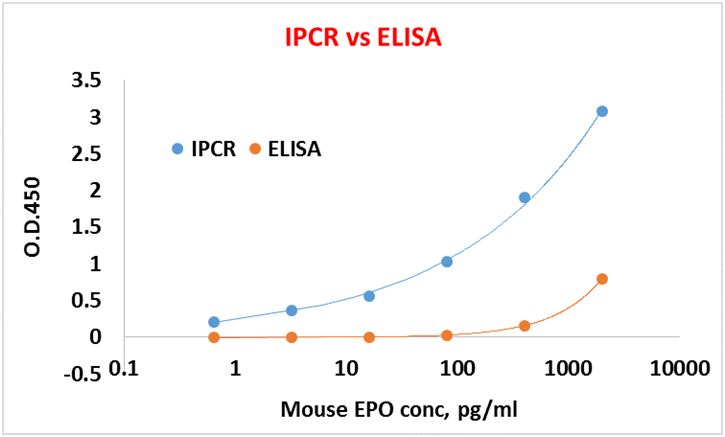No products
Ultrasensitive ELISA/ ImmunoPCR (NB-SC108)
Immuno-PCR (iPCR) is a powerful method for detecting ultra-low quantities of antigens. It combines the advantages of both enzyme-linked immunosorbent assay (ELISA) and PCR in specificity, sensitivity and easy to adapt. Despite its potential, iPCR is an underutilized method as evidenced by the low number of publications on its routine application and unavailability of validated, ready-to-use commercial kits. To make it possible for the researchers to detect various low-abundant analytes, Novatein Biosciences is introducing validated and ready-to-use iPCR conversion kit and iPCR kits.

Fig. 1. Schematic of iPCR technique
Novatein Bioscience’s iPCR conversion kit makes it possible to convert moderately sensitive conventional ELISA to an ultra-sensitive iPCR. The kit has all the reagents except antibodies and standard. One of the main advantages of using Novatein Bioscience’s iPCR conversion kit is its scalability to high-throughput systems. In a typical work day, ~500 samples can be quantified in triplicate.
Other advantages of iPCR over conventional ELISA include:
- 10-100 fold improvement in the assay range making it possible to quantify low-abundant targets like HMGB1, HCP etc
- Low amounts of sample is needed, which means saving of precious samples and no matrix effect.
In addition, Novatein Bioscience is offering the following validated iPCR kits:
- Mouse Erythropoietin iPCR kit
- Host Cell Protein (HCP) iPCR Kit
- Mouse HMGB1 iPCR Kit
- Human HMGB1 iPCR Kit
- Rat HMGB1 iPCR Kit
Comparison of IPCR and ELISA: Detection of Mouse Erythropoietin

